 8686 139 139
8686 139 139
 8686 139 139
8686 139 139
Caregivers face a myriad of challenges that can be both physically and emotionally taxing. Balancing the demands of caregiving with personal responsibilities often leads to stress, fatigue, and even burnout in many cases. The unpredictable nature of caregiving, coupled with the emotional weight of seeing a loved one in need, can be overwhelming.
Additionally, many caregivers struggle with financial strain, lack of social support, and limited access to resources, which can further complicate their ability to provide effective care. In this section, we will talk about the many challenges faced by caregivers as well as some strategies that they can implement to ease their journey.
Disclaimer: It is important to remember that every individual is different, and the below-given interventions might not work for everyone. When feeling overwhelmed, seeking professional help can help you process your emotions and navigate situations more effectively.
Feel free to contact a counsellor via our Helpline if at any stage, you feel like you need extra support to manage your thoughts or emotions. Our Helpline number is 8686 139139. It is open all days of the week from 9am to 8pm. You can also email us at counselling@manntalks.org
Caregiving takes up a lot of time and energy, often leaving little room for personal time and independence. This sacrifice can significantly impact your mental and emotional well-being, as you may have to put your own needs, hobbies, and social life on the back burner. Finding a way to balance your personal life with caregiving is important for your overall health and happiness.

Delegate Task: Don’t hesitate to share the workload. Reach out to family members, friends, and, if your budget allows even professional caregivers to help you so you can take a breather. The Eisenhower Box, also known as the Eisenhower Matrix or Urgent-Important Matrix is a valuable decision-making tool designed to help prioritise tasks based on their urgency and importance. It was popularised by former U.S. President Dwight D. Eisenhower, who used this method to manage his many responsibilities effectively.
Caregivers often feel overwhelmed by the sheer number of tasks and decisions they encounter each day. Balancing caregiving responsibilities, personal obligations, and self-care can lead to stress and burnout.
The Eisenhower Box provides a structured way to evaluate and prioritise tasks, helping caregivers delegate responsibilities, focus on what matters most, and find time to rest. Here’s how caregivers can apply the Eisenhower Box to divide their daily tasks and delegate some to others.
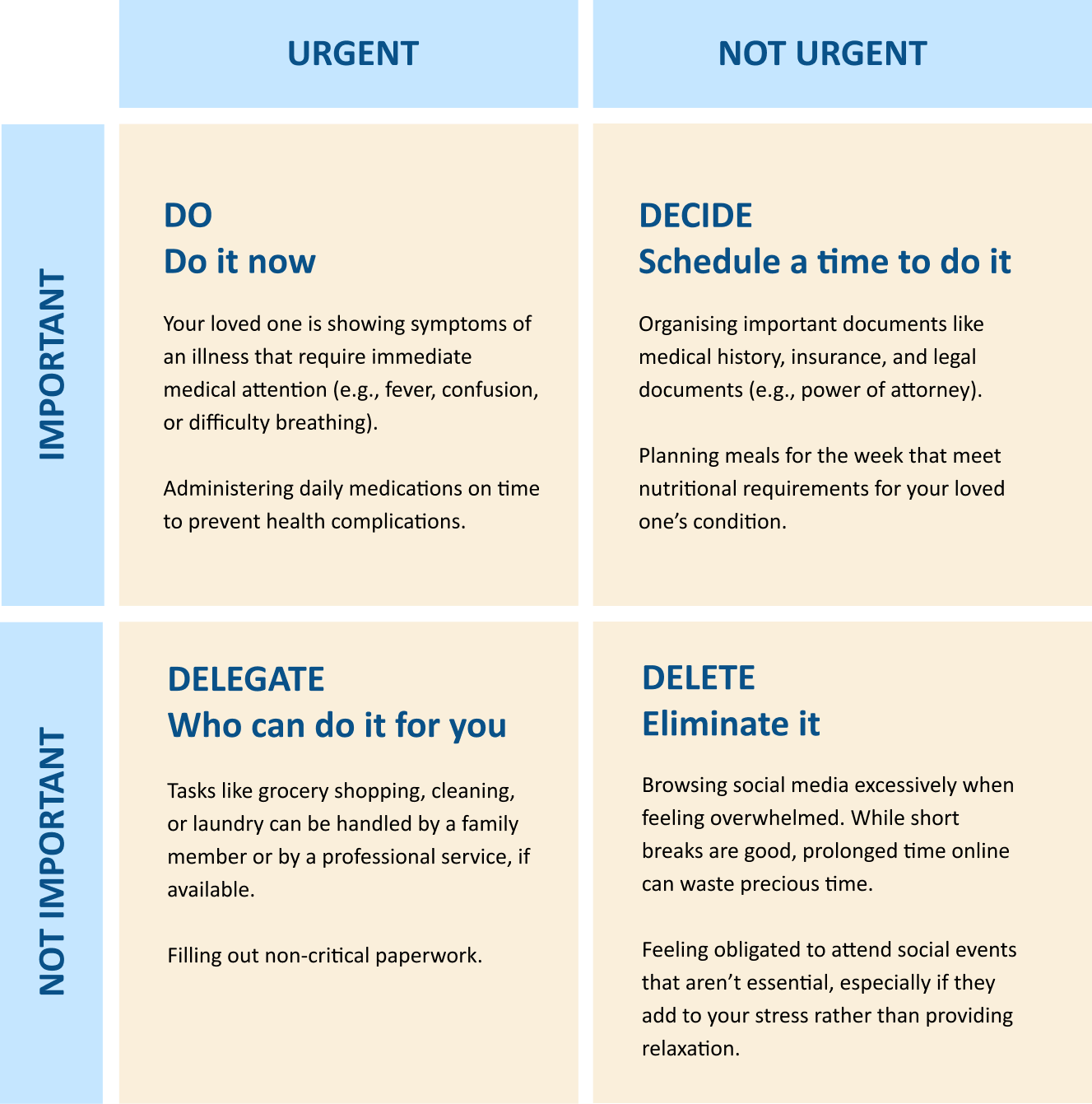
This structured approach makes it easier for caregivers to decide where their time and energy should go, ensuring they focus on what truly matters while allowing themselves the time and space for self-care.
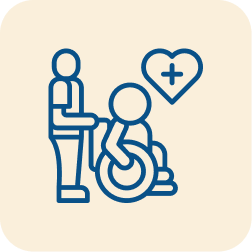
Mix personal time with caregiving: Look for ways to blend your personal time with caregiving. For instance, you can listen to your favourite podcast or audiobook while handling tasks, or squeeze in some light exercise while your loved one rests.

Plan regular breaks: Make it a point to schedule regular breaks where you step away from caregiving, even for a short time, to do something that recharges you. Let others involved in caregiving know when you have planned your break, so they can take over the responsibility for that period and respect those boundaries.
Caregiving is a generous and loving act, but it’s just as important to take care of yourself. Protecting your personal time and independence will help you maintain a healthier balance, which benefits both you and the person you care for.
While caregiving can often overshadow other aspects of our lives, it’s important to understand that we play multiple roles-parent, sibling, spouse, professional, and more. We would like you to take a moment and think of all the roles other than caregiving that you play and list them. Trying to keep up with all the roles can make you feel stressed, overwhelmed, and physically and emotionally exhausted.

Prioritise and delegate tasks: Identify which tasks are most urgent and important. Determine what can wait or what can be delegated using Eisenhowe’s box. Sharing responsibilities can lighten your load and reduce stress.

Structure your day: Develop a detailed schedule that includes time for caregiving, work, personal responsibilities, and self-care. A structured schedule can help you balance multiple roles. Stick to it as much as possible, but be flexible in case of unexpected changes.

Acknowledge your effort: Pause and take a moment to recognise all that you have accomplished. Express gratitude toward yourself by writing in a journal about your achievements, no matter how small. Acknowledging your efforts can serve as a reminder of how you are juggling many roles all at once. This can also serve as an opportunity for some much-needed self-care. For more tips, visit self-care.
Juggling multiple roles is challenging. We may not always achieve a perfect balance between caregiving and other roles, and that's okay and sometimes impossible. You are doing your best. Be proud of what you’re accomplishing and show yourself compassion along the way.
Conflicts can be emotionally draining and, if left unresolved, can impact the overall well-being of both the caregiver and the care-recipient. To resolve conflicts effectively, it’s essential to get to the root cause, as this helps in understanding underlying issues and finding better solutions.

Root Cause Analysis: Briefly describe the recent conflict or recurring issue with the care recipient. Use the “5 WHYs” technique to dig deeper each time, probing for a more fundamental cause.
Learning the root cause can help you develop empathy as you try to understand the other person’s perspective. Once you know the root cause, you can sit with your emotions, journal about your experiences, and communicate more effectively with your care-recipient. To learn effective communication strategies, please refer to this link.
The relationship with your care-recipient can be challenging, but it’s important to remember you’re both facing difficulties together. Be patient, show empathy, and take time to reconnect.
When multiple caregivers are involved, it is common to have differing opinions about what’s best for the loved one in care. Disputes can also arise regarding the distribution of responsibilities, financial disagreements, and coordination of care. Navigating these conflicts can be challenging. Communication is crucial for resolving such issues since we all want the best for our loved ones.


Recognise and appreciate the efforts of all caregivers to foster a positive and supportive environment.
Conflicts with other caregivers are natural, especially when stress and emotions run high. It’s okay to disagree-what matters is finding a way to communicate respectfully and work through differences.
Due to its demanding nature, caregiving can often lead to feelings of isolation and loneliness. You might notice it consumes a significant amount of your time, leading you to avoid social interactions or personal activities. Changes in roles can often lead to loss of relationships and social ties. Furthermore, people may not completely understand the toll caregiving takes on you, causing a rift in your social relationships.

Stay connected with friends and family: Stay in touch with your loved ones via phone calls, video calls, or social media.

Join Support Groups: Connect with other caregivers who can understand and relate to your experiences, through support groups, either online or in person. Following organization offer support group spaces for caregivers: Mental Health Support Foundation, Agatsu Foundation, Family Alliance on Mental Illness, India (FACEMi), Caregiver Saathi, Schizophrenia Research Foundation (SCARF).

Professional help: Reaching out to counsellors and therapists (mental health professionals) can help you better understand your emotions and thoughts. A professional can also help you develop coping mechanisms and manage burnout. To explore the mental health services we provide at Mann Talks, click here.
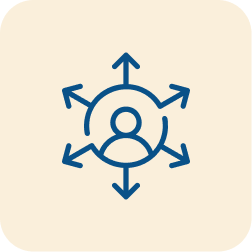
Explore respite care: Outsourcing some part of care can give you a much-needed break from caregiving responsibilities. Arrange for someone to offer temporary assistance, allowing you to find some time for yourself.
Isolation can creep in, but reaching out for connection-whether through friends, family, or support groups-make yourself seen and allow others to support.
Caregiving can be incredibly demanding, and it’s easy to get so caught up in taking care of someone else that you forget to look after yourself. It’s not unusual to start feeling burnt out or overwhelmed when this happens. That’s why it’s so important to find a balance between caring for your loved one and caring for yourself- it helps you stay healthy and provide better care overall.

Set clear priorities: After identifying the areas that are out of balance, focus on what matters most in your life and caregiving. Start with one area you would like to prioritise along with caregiving and set small, achievable goals to create that balance.

Check in with yourself regularly: Ask yourself, “How am I feeling?” “How do different areas of my life look today?” What changes have I been able to make and how does that make me feel?

Seek professional support: If you are struggling to find balance, consider reaching out for professional support. You can reach out to a coach, especially one with previous caregiving experience, who can guide you through your journey with insights and strategies tailored to your unique challenges. Caregiver coach is a service offered by Caregiver Sathi. You can also reach out to a Counsellor at Mann Talks at 8686 139 139, available Mon-Sun from 9 am - 8 pm, for mental and emotional support.
Here’s a helpful resource for taking care of yourself: Mann Talks - Caring for Yourself
Life won’t always be perfectly balanced, and that’s okay. The goal isn’t to achieve perfect balance, but rather to continually find and restore balance in ways that work for you.
As a caregiver, you’re constantly faced with decisions related to medical care or daily routines. Over time, this continuous decision-making can wear you down, making it harder to stay focused and confident in your choices. This is called decision fatigue, and it can leave you feeling anxious, guilty, and frustrated, further complicating an already challenging role. Learning how to handle this fatigue is really important for both your well-being and the care you provide.

Establish routines: Create fixed routines for daily tasks so that some decisions become automatic. For example, plan a weekly menu for breakfast, lunch, and dinner.

Set time limits for decisions:Give yourself a specific amount of time to make decisions.
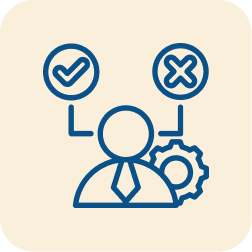
Prioritise decisions: Organise decisions into urgent, important, and less critical categories.
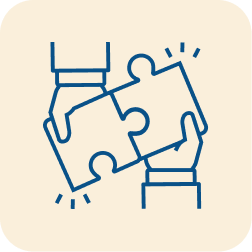
Collaborative decision-making: Seek help from experts and trusted people when making decisions.

The Decision Clarity Grid: This tool helps you narrow down your options when faced with multiple choices. It simplifies complex decisions into actionable steps, allowing you to weigh your options and prioritise effectively.
Caregivers often face decisions related to managing the care of their loved ones, such as selecting care options, organising schedules, or prioritising activities. Here’s an example of how a decision grid could be useful for you as a caregiver:
Step-by-step guide to making the decision:
| Options/ Factors | Cost | Quality of Care | Accessibility | Flexibility | Total Weighted Score |
|---|---|---|---|---|---|
| Home Care | |||||
| Assisted Living | |||||
| Day Care |
| Options/ Factors | Cost | Quality of Care | Accessibility | Flexibility | Total Weighted Score |
|---|---|---|---|---|---|
| Home Care | 4 | 4 | 4 | 4 | |
| Assisted Living | 2 | 5 | 5 | 5 | |
| Day Care | 5 | 3 | 3 | 3 |
| Factors | Weight |
|---|---|
| Cost | 3 |
| Quality of Care | 5 |
| Accessibility | 4 |
| Flexibility | 5 |
| Options/Factors | Cost (3) | Quality of Care (5) | Accessibility (4) | Flexibility | Total Weighted Score |
|---|---|---|---|---|---|
| Home Care | 4×3= 12 | 4×5= 20 | 5×4= 20 | 5×5= 25 | 77 |
| Assisted Living | 2×3= 6 | 5×5= 25 | 3×4= 12 | 4×5= 20 | 63 |
| Day Care | 5×3= 15 | 3×5= 15 | 4×4= 16 | 3×5= 15 | 61 |
Recognise the responsibility you’re shouldering in making decisions. It’s a challenging task, and it’s important to acknowledge the effort it takes.
Caregiving can really take a toll on your finances. Medical costs, including treatments and medications, can add up fast, especially if you don’t have adequate insurance coverage. Many caregivers also experience a loss of income because they have to cut back on their work hours or even quit their jobs entirely. Besides, expenses such as transportation, home modifications, or hiring extra help- can further increase the financial strain. This can cause a lot of stress and impact both your well-being and the quality of care you provide.

Explore financial assistance: Look into government programs, grants, insurance policies, and resources available through community or religious organisations, as well as non-profit organisations that offer financial aid, free medical supplies, or discounted care services. There’s often help out there once you start exploring.
Financial stress is a common challenge for caregivers, but proper planning and using the right resources can ease some of that pressure. Taking control of your finances will not only help reduce your stress but also ensure that you can keep providing the best care possible for your loved one.
Caregiving doesn’t happen in isolation; it’s influenced by larger issues like healthcare, societal factors, and policies, all of which can add extra stress. These challenges can significantly impact your ability to care for someone. Recognising these pressures is important for easing the load on caregivers.
Healthcare system challenges: Dealing with complicated healthcare systems, endless paperwork, and getting access to proper care can be really overwhelming.
Lack of support services: Not having enough respite care, mental health services, or community resources can leave caregivers feeling isolated and unsupported.
Workplace inflexibility: Many caregivers have trouble juggling their jobs and caregiving responsibilities because their workplaces don’t offer flexible hours or supportive policies.

Support groups: Reach out to a caregiving community that can understand your challenges. These groups provide a space where you can seek support, advice, and empathy from those who are navigating the same system. Organisations supporting caregivers: Mental Health Support Foundation, Agatsu Foundation, Family Alliance on Mental Illness, India (FACEMi), Caregiver Saathi, Schizophrenia Research Foundation (SCARF).

Accept the challenges: Caregiving is like steering a boat through changing waves. While you can’t change the waves or the weather, you can steer the boat to keep moving forward. By accepting that you can’t control everything, you can focus on guiding your boat through rough patches and staying on course. Focusing on what you can control and can’t control can help you build acceptance toward navigating tough situations.

Advocacy and policy education: Learn about the rights and policies for the condition of your care-recipient. You can also join caregiver advocacy groups that push for policy changes.
Systemic stressors might feel beyond your control, but by staying informed, seeking support, and advocating for change, you can tackle these challenges more effectively.
Caregivers often face significant stigma stemming from a lack of understanding about their demanding roles. They may be unfairly perceived as less capable or less committed, despite their dedication and sacrifices. Caregivers may often be judged for taking breaks for themselves, making decisions for their loved ones, or even mocked for taking professional help.
Women, in particular, are seen as “natural” caregivers, so their struggles are often diminished, and they are expected to be always available. The responsibility of the care recipients’ every action may often be pushed onto the caregivers, usually resulting in comments about the incompetence of their care.
This perception can stem from the misconception that caregiving should come naturally and does not require specialised skills or support. Caregivers caring for recipients with addiction, neurodivergence, and physical or mental disability can face the brunt of society’s judgements and ridicule, leading to loneliness, isolation, shame, guilt, anger, and grief. Caregivers often bear the weight of these stigmas in silence, which can exacerbate the physical, emotional, and mental challenges of their role.

Circle of control: Draw two concentric circles on a piece of paper. In the innermost circle, list all the things that are in your control, such as your actions, in the outer circle, list the things that are partially under your control, such as your emotions and in the outer area of the circles, list the things that are out of your control, such as other peoples thoughts and actions. This activity can be done to remind ourselves that we cannot control what people think about our decisions, and their emotions are not our responsibility.
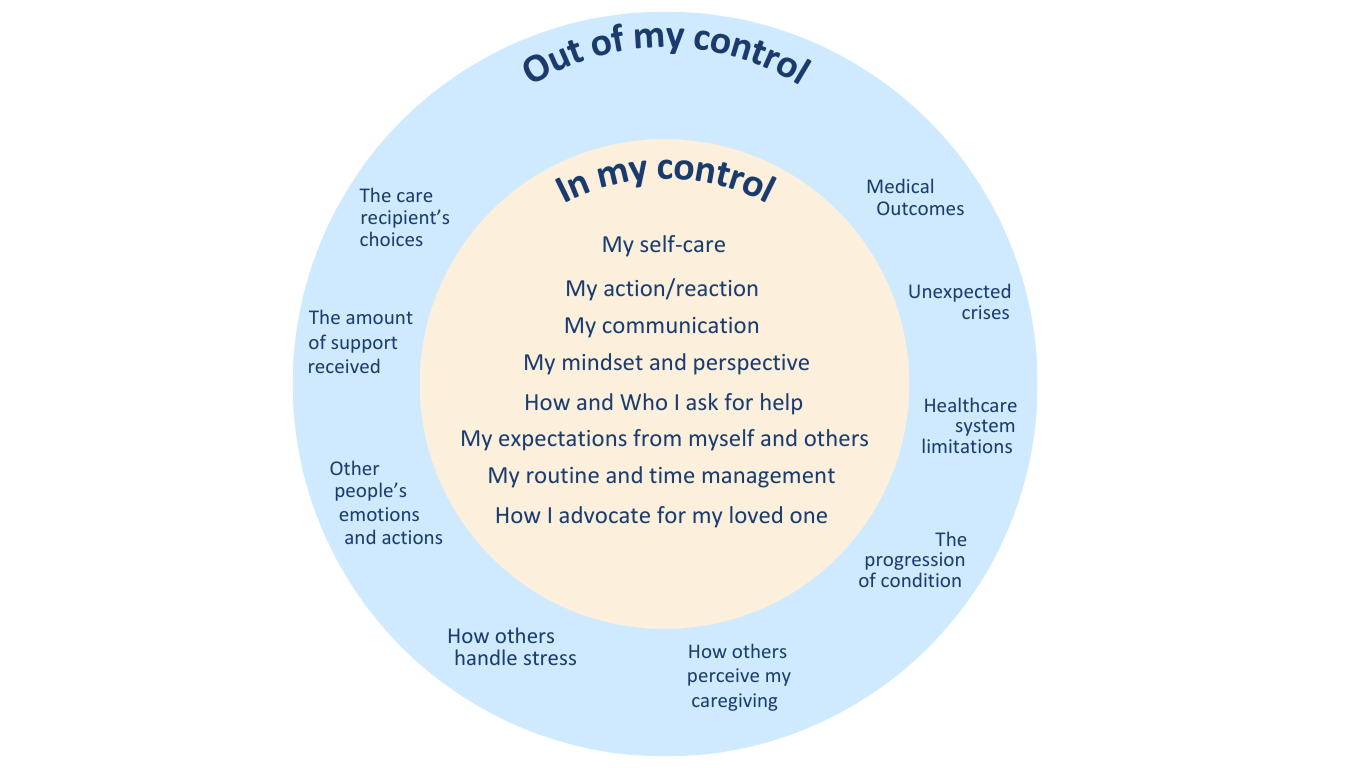
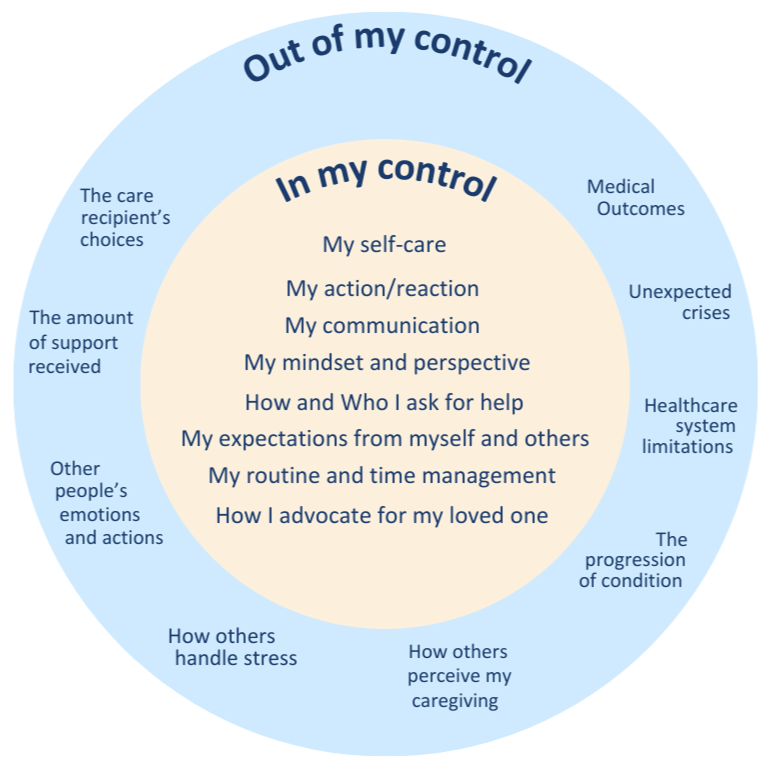

Set boundaries: Politely decline unhelpful input and focus on your own caregiving approach, which you know best suits your situation. Draw boundaries by being assertive, not sharing information you are not comfortable with, and keeping your life private from people who may cause more harm than good.

Validate your experiences and emotions: Others around you may, at times, disregard your emotions and experiences, but that doesn’t mean that they are not valid. People’s responses are often influenced by their perspectives, biases, or inability to fully empathise. You can write down your emotions, thoughts, and experiences without censoring yourself. Being kind to yourself is especially important when others may not offer the kindness you deserve.
You cannot control how others perceive or judge you, but that doesn’t make your experience any less valid. Caregiving is a challenging role, and your efforts matter-regardless of others' misconceptions.
Burnout is feeling completely worn out because of too much work, responsibility, or stress over time, and losing the ability to function effectively. Imagine running a marathon without enough rest-you get exhausted, frustrated, and start losing motivation to keep going, even for things you would like to do. Burnout is different from general fatigue, which can be relieved with sleep or rest. Burnout runs deeper.
As a caregiver, you may feel overwhelmed by tasks like managing medication, appointments, and housework, with no time to rest. Burnout can cause one to feel frustrated and exhausted, leading to mistakes or resentment toward caregiving responsibilities. It can result in poor quality of care or even make you physically sick, adding to the stress.
Compassion fatigue happens when you’re emotionally supporting the one you are caring for. It’s like pouring from your cup of care every time you support someone, but if that cup isn’t regularly refilled, it runs dry-leaving you emotionally exhausted. It is not just about being physically tired; it’s the gradual wear and tear of carrying the pain, struggles, and emotions of others for so long without taking enough care of yourself that you begin to feel numb or detached, even though you still care deeply inside.
Compassion fatigue eventually makes it harder to connect emotionally, which is crucial for caregiving. It can also make you feel guilty for needing space or rest
| Aspect | Burnout | Compassion Fatigue |
|---|---|---|
| Onset |
Develops over a period of time due to chronic stress. |
May develop rapidly, sometimes due to a single highly stressful event. |
| Cause |
Long-term stress from workload and responsibilities. |
Emotional exhaustion from exposure to others’ pain. |
| Emotional signs |
Frustration, irritability, or feeling helpless, exhausted. Indicative thoughts could be-
|
Numbness, emotional detachment, and sadness. Indicative thoughts could be-
|
| Mental state |
Feeling demotivated, cynical, or indifferent toward tasks. Indicative thoughts could be-
|
Feeling overly empathetic at the beginning but then eventually feeling disconnected or indifferent. Indicative thoughts could be-
|
| Physical symptoms |
Fatigue, headaches, body aches, trouble sleeping. |
Fatigue combined with emotional heaviness, helplessness, or anxiety. |
| Behavioural signs |
Avoiding caregiving responsibilities, procrastination, or being unproductive. |
Withdrawing emotionally or being overly sensitive to others’ emotions. |
| Impact on relationships |
Conflicts with family or colleagues, isolation. |
Feeling distant or indifferent toward those being cared for. |
| Recovery requires |
Rest, stress management, and workload adjustments.
|
Needs emotional processing, self-compassion, and sometimes counseling. |
Recognising when you’re experiencing burnout or compassion fatigue helps you address it before it worsens. When you care for yourself, you can care better for others. Taking breaks or asking for help can make caregiving sustainable. Setting your limits and prioritising your own needs without guilt is important in one’s caregiving journey.
Burnout and compassion fatigue don’t mean you’re failing-they mean you’ve been giving too much without enough replenishment. Prioritizing your well-being isn’t selfish-it’s essential for sustaining your role as a caregiver.
The Mann Talks Helpline employs trained mental health professionals who offer an empathetic and non-judgemental environment where you can share your thoughts, emotions and experiences freely. The conversation will be confidential, and your privacy will be respected at all times.
Calling the Mann Talks helpline offers:
We are an inclusive platform and encourage individuals from across experiences, backgrounds and abilities to use the services available. We do not discriminate on any grounds, whatsoever.
A common misconception is that a helpline should only be used in moments of crisis. You can reach out to Mann Talks any time you are feeling emotionally distressed.
We often feel guilty about reaching out to friends and family constantly. We fear their judgement, or we may not want to share sensitive information with those close to us. At Mann Talks, you will get to speak to a trained mental health professional who will provide you with an unbiased, safe and confidential space where you can comfortably share your thoughts, emotions and experiences.
Sometimes, a loved one may be going through a tough time and you may not know how to help them. You can reach out to Mann Talks on behalf of your loved one to find out how to support them and minimize the emotional distress they are going through.
When you call the helpline, the mental health professional that you speak to will be respectful, emotionally supportive, non-judgmental and listen to you patiently.
At Mann Talks, we consider privacy and confidentiality to be of utmost importance. We prioritize our callers' privacy so that their identity, respect and dignity are uncompromised.
All conversations between the caller and our mental health professionals will remain confidential unless there is danger to the callers or others.
All conversations between the caller and our mental health professionals will remain confidential unless there is danger to the caller or others.The trained mental health professionals speak in Hindi, Marathi, Punjabi, Bengali and English. The Helpline is active from Mon-Sun, 9 a.m. to 6 p.m.
While talking to a friend or family member may be comforting, there is a risk that they might bring their own biases and judgements to the conversation. There may also be things that we don’t want our loved ones to know—thoughts and emotions that cause us anxiety, guilt or shame; or painful emotions that they might not be able to handle.
The mental health professionals at Mann Talks are trained in the art of listening and offer a safe space without any bias or judgement. This will allow you to speak more freely than you would with someone you know. They are also trained to be able to understand your pain and situation, and help you resolve your issues.
At Mann Talks, we prioritize confidentiality, dignity and respect of the caller. Our mental health professionals will not share anything you discuss with anyone else. The only time confidentiality may be broken is if the mental health professional feels you might harm yourself, or those around you.
In any other circumstance, what you share remains confidential.
It is important to feel comfortable with the mental health professional you’re accessing treatment from. If you feel like the professional you’ve been assigned/are speaking to isn’t a good fit for you, it’s okay to request a different one.
Don’t feel pressured to continue to talk to a professional you don’t like—after all, Mann Talks is for your wellbeing, and your comfort comes first.












